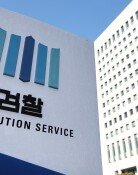[Opinion] World Cup, Do Not Simply Regard It as an `Economic Issue`
[Opinion] World Cup, Do Not Simply Regard It as an `Economic Issue`
Posted January. 16, 2002 09:42,
President Kim Dae-Jung stressed the importance of successfully hosting the World Cup over and over at the New Year Press Conference to the point that it seemed rather exceptional. He said that the opportunity to host the World Cup comes around may be once in a century and expects it to have an economic impact of over 1 trillion won in profit. He sees a successful World Cup as an unmatched opportunity for national prosperity.
Since the World Cup really is a rare opportunity, such expectations may have some merit. Yet, if we see the World Cup solely as an economically beneficial sporting event, it will be difficult for us to use it as an opportunity for national prosperity. Even if we economically benefit from the event or our team performs well and breathes life back into our people who are tired from the daily grind, such things will be no more than fleeting side-effects.
In order for the hosting of the World Cup to become a turning point in national fortune, we must see it from the perspective of national development. Historically, the strategy that Third World nations have used to accelerate the process of development has been state intervention. This strategy, however, led to the loss of social equality and unequal distribution of wealth. Consequently, challenging authoritarian governments has become a matter of course and the benefit of the market economy system has become a point of emphasis.
One of the issues that Third World developing nations have considered after such historical reflections is the problem of how, on the one hand, to maintain the two oppositional strategies without damaging the nature and strength of neither, and how, on the other, the two can supplement one another`s weaknesses.
Hosting the World Cup can be an opportunity to create the conditions for the two polar strategies for national development to coexist and reconcile with one another. The range and relative importance of the administration`s control can be strengthened in order to carry out this once-in-a-century sporting event successfully and reinstate market economy principles and mindset immediately following the event. The two oppositional strategies can be temporarily exchanged. It is the same as when a guest visits our homes or when there is an important family event. The usual inertia and idleness is replaced by the family`s group effort to clean the house and temporarily strengthen the authority of the head of the household. In other words, we do not have to find a third way by mixing state interventionism or liberal capitalism. Instead, we can use both strategies at different points in time, preserving the unique advantage of both while supplementing their weaknesses.
This is like a bamboo tree which continues to grow after one branch matures through the emergence of a new branch. In order to turn the World Cup into an opportunity for national prosperity, we need to re-examine thoroughly our present order and perspective, and start a new branch for societal growth. We can shake off our inertia, take up the challenge and opportunity of hosting the World Cup with renewed enthusiasm and earnestness, and promise ourselves a new level of growth and development from the basis of this new mindset and attitude.
Through this effort, we will have to mobilize our energy to build a better society, better individuals, and set a new vision and new plan for tomorrow. The time when only hard work without time for reflection mattered is past. We must take a moment to reexamine our present and reflect on how to deal with future changes and direction. We can take this as a means to use the opportunity that the World Cup offers us.
Yet, one wants to ask whether the current administration has prepared for the World Cup with such goals in mind. If, as the press conference indicated, the administration sees the World Cup simply as an opportunity to make money and do more business, how will the nation agree to support it? Even if the World Cup brings in more than 1 trillion won in profit, the people do not have any reason to rally behind the effort should it remain unclear to whom the money goes.
The attraction of the World Cup may be the most fundamental condition for national benefit. Yet, we will have to tell ourselves once again that this condition cannot promise national prosperity by itself.
Park Jae-Chang (Sookmyung Women`s University, Professor of Administrative Studies)




![“한동훈, 정치생명 걸고 무소속 출마해 평가받는 것 고려할만”[정치를 부탁해]](https://dimg.donga.com/c/138/175/90/1/wps/NEWS/IMAGE/2026/01/19/133186982.1.jpg)

![[한규섭 칼럼]왜 여당 지지율은 떨어지지 않는가](https://dimg.donga.com/c/138/175/90/1/wps/NEWS/IMAGE/2026/01/19/133189257.1.png)
